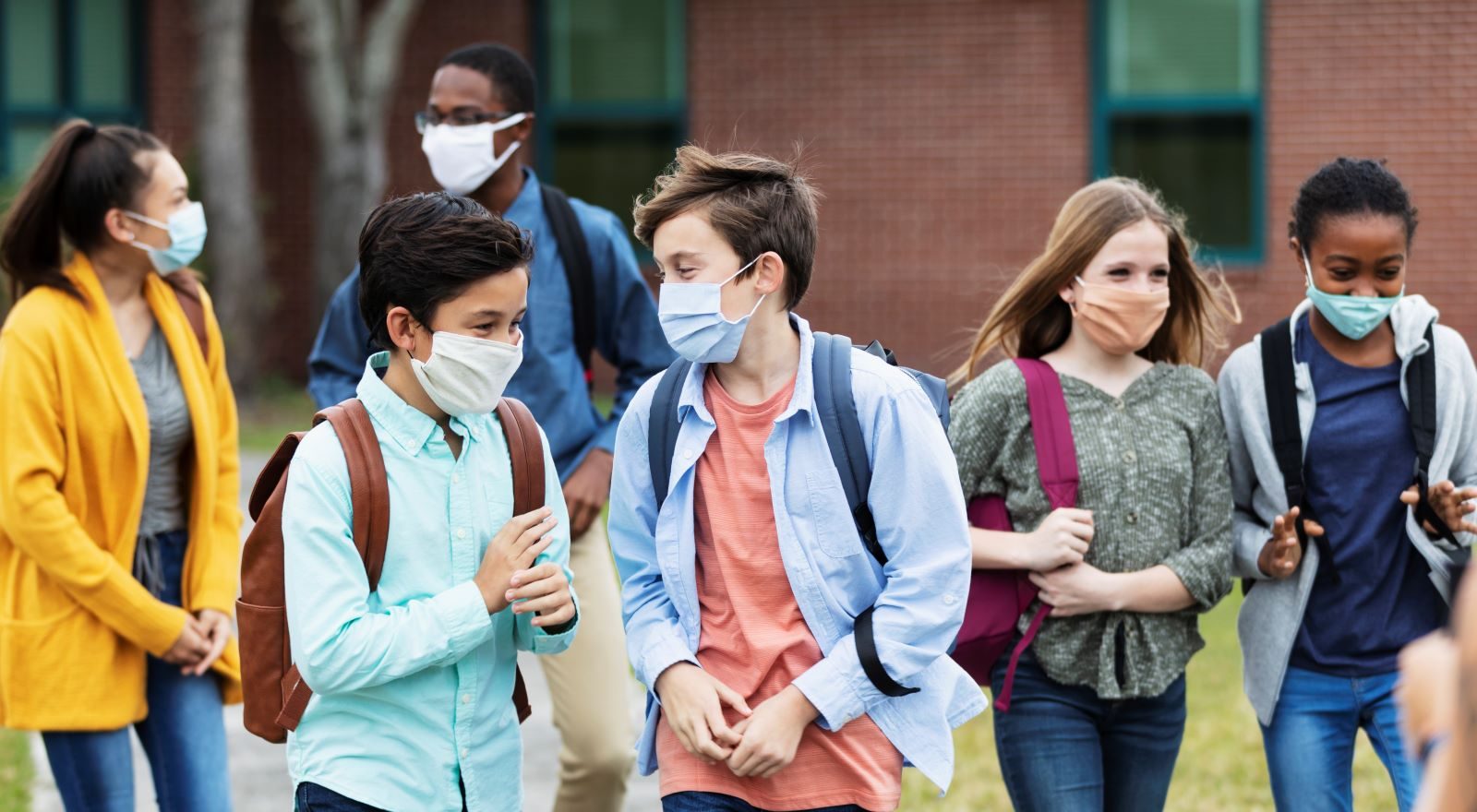Notebooks, check. Pencils, check. Masks, again?
As families prepare for youth of all ages to return to the classroom, the post-pandemic world still demands caution around the spread of infections like COVID-19.
> Connect with Hartford HealthCare’s CampusCare
What parents need to know
The Centers for Disease Control and Prevention (CDC) recently released updated guidelines for students, teachers and parents. Changes include:
- Elimination of test-to-stay requirements. Children, vaccinated or not, who are exposed to someone sick with COVID do not have to test negative in order to stay in school. People with no symptoms don’t need to be screened at all. Instead, anyone exposed to the virus but showing no symptoms should wear a mask for 10 days, including at school, and be tested five days after exposure.
- Isolate for five days after testing positive. This applies to everyone, whether vaccinated or not. If the fever drops and symptoms are improving after five days, the person can end isolation, although masking is still required for another five days.
- Two negative tests are required to return to school. Anyone with COVID must have two negative tests, 48 hours apart, before going out in public or to school without a mask. Or, they can wait 10 days and go out mask-free.
- School districts can determine mask rules. This should be based on the community’s risk level.
- Schools can relax social distancing rules of six feet or more.
“It’s important for us as a nation to learn to live with COVID. The pandemic is not over, but the latest CDC guidelines allow us to better live our daily lives while addressing any potential risk,” said Henry Anyimadu, MD, chief of infectious disease for Hartford HealthCare’s Central Region.
While the CDC announcement did not specifically address colleges and universities, Ralph Dodd, PsyD, regional director of collegiate counseling for Hartford HealthCare’s CampusCare program, said campus leadership at CampusCare partners have the pandemic top of mind.
“The colleges are all staying with the vaccination requirements from the spring semester last year and are highly recommending boosters,” Dr. Dodd said. “According to our infection prevention specialists, there is a possibility of a variant-specific booster being available this upcoming school year. If that happens, the universities and colleges will assess their booster plan and make additional recommendations if needed.”
Some schools are planning to continue requiring masks in the classrooms this year, while others are leaving that decision up to the students and faculty in the classrooms.
“Furthermore, if one student or faculty member wants masks worn in the classroom, everyone will have to wear one,” Dr. Dodd said.
The schools have also stopped surveillance testing of students, but will continue to test anyone with symptoms of the virus.




